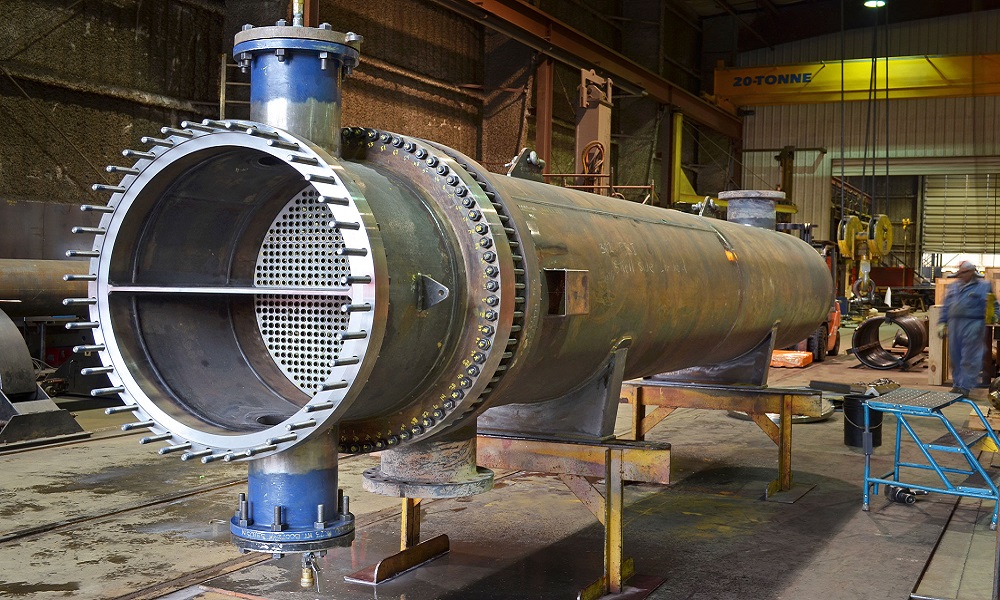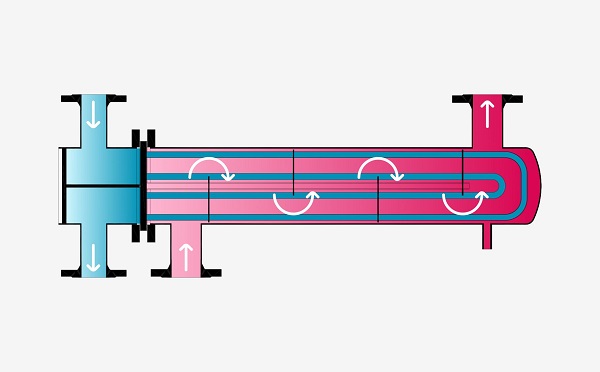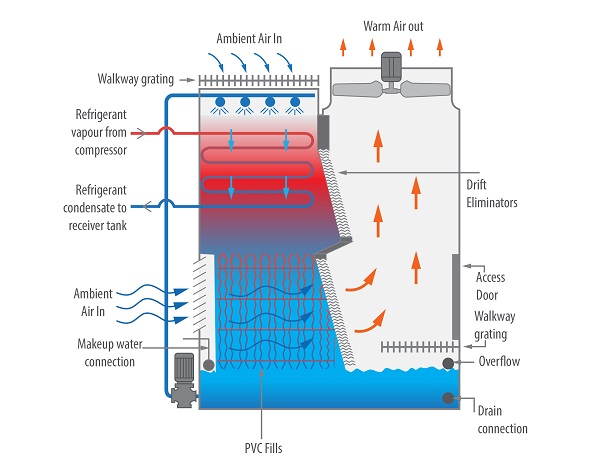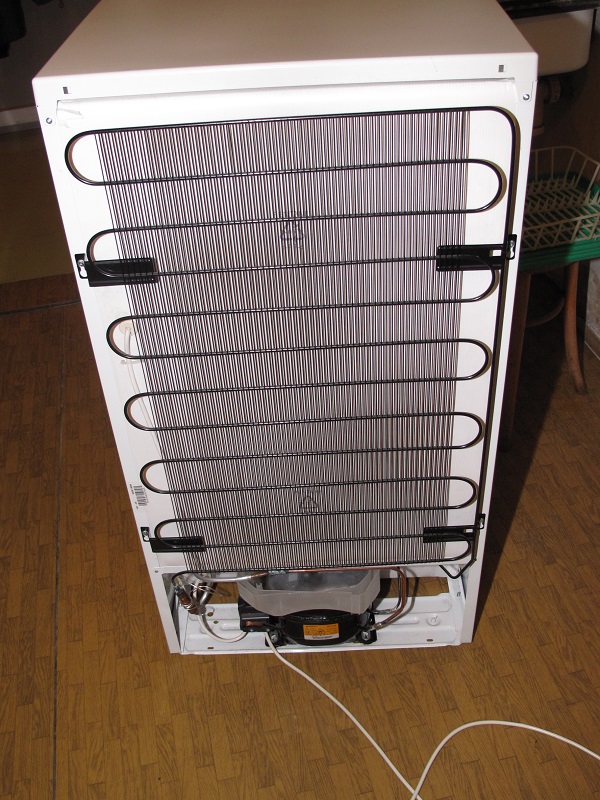Heat exchangers and condensers are two of the most common types of equipment, that are used in a wide range of objects. From industrial companies to our own homes, we can see a variety of these apparatuses everywhere. You probably have a few of them in your house. If you’re in the industrial business, you’ll most likely need them or will encounter them sooner or later.
A type of refrigeration system is a condenser. It functions like a heat exchanger. It may quickly transport the heat inside the pipe to the air nearby and change gas or vapor into liquid. An apparatus known as a heat exchanger is used to transfer heat from a heated fluid to a cold fluid. Heat exchangers play a significant part in production and are a frequent piece of equipment in the chemical, petroleum, power, food, and many other industrial sectors. Different Types of HVAC systems are provided by several suppliers and companies, Different Manufacturers, and a lot of distributors and there are a lot of HVAC Systems for Sale on Linquip.
There is a complete list of HVAC services on the Linquip website that covers all OEM fleets. Linquip vendors can assist you with this. Please contact Linquip’s HVAC Experts to discover more about how to connect with a diverse group of service providers who consistently deliver high-quality items.
So the more you learn about them, the better you can pave your way in the industrial business. But is there a difference between these two? What are their similarities? Can they both function as each other? There are tons of questions that arise if you want to learn and discover more about these useful types of equipment. So keep reading until the end of this article, to learn the difference between Heat Exchanger and Condenser thoroughly with Linquip.
Difference Between Heat Exchanger and Condenser at a glance
When it comes to learning the difference between Heat Exchanger and condensers, first you must ask if a condenser is a heat exchanger. Virtually, yes, but technically, no! Some similarities and differences can put the two in the same group or separately. For starters, a condenser is a system that transforms a substance from steam to a liquid state. In contrast, a heat exchanger is an apparatus that retrieves the heat that’s produced in the process. As the name suggests, heat exchangers shift the heat among two or more fluids. So the main difference between the two is that their goal of altering the physical state of the substances differs altogether.
The heat exchanger is usually used as a heat recovery force. This unit transfers heat between two states, from one having the higher temperature to the one having the lower temperature. A condenser, however, alters the phase of the substance, changing it from vapor to liquid.
So we’re clear that a condenser changes the phase of a substance, while a heat exchanger does not. The substances between which a heat exchanger transfers heat are liquid and gas, solid and gas, solid and liquid, or gas and gas.
What is a Heat Exchanger?
To learn the difference between Heat Exchanger and Condenser, you must first learn about heat exchangers. A heat exchanger refers to a heat transfer system. That means heat exchangers transfer heat among two or more fluids. You can use a heat exchanger to both heat or cool, based on your purpose. These fluids are segregated using a rigid wall to ensure they are not mixed or in direct contact. Heat exchangers are used in a variety of pieces of equipment. Some examples are refrigeration, power centers, petrochemical plants, natural-gas processing, space heating, air conditioning, chemical plants, petroleum refineries, and sewage treatment.
The internal combustion engine is the go-to example when it comes to discussing heat exchangers. In an internal combustion engine, a fluid named engine coolant will circulate and flow within radiator coils. At the same time, air passes the coils and warms the incoming air while cooling the coolant.
The heat sink is another piece of equipment that demonstrates the heat exchanging process. A heat sink is a passive heat exchanger. Using this device, the heat that is produced by a mechanical or electronic system is transferred to a fluid instrument. The fluid medium is usually a liquid coolant or air.
Four main types of heat exchangers
Heat exchangers vary in design based on their usage. They might function differently, have multiple shapes and sizes, and be used in distinct areas. They’re all heat exchangers nonetheless and they can be categorized into 4 different types below:
- Double Tube Heat Exchangers
- Shell and Tube Heat Exchangers
- Tube in Tube Heat Exchangers
- Plate Heat Exchangers
What is a Condenser?
A condenser is a type of heat exchanger. This partially answers the difference between Heat Exchanger and Condenser. Condensers operate by condensing gaseous substances into a liquid condition by cooling them. During this process, the latent heat is liberated from the substance and shifted to its surroundings. The coolant in condensers is generally surrounding air or cooling water. Various industrial systems use condensers to efficiently repel heat. Condensers are available in many different sizes, ranging from small and pocket-sized to enormous sizes like industrial-scale units used in plant processes. They can also be designed in many different ways.
Refrigerators are a common example of condensers that remove the heat of the internal system and distribute it to the exterior air. Another known device that has a condenser is an air conditioner. industrial chemical processes including steam power plants, distillation, and multiple other heat-exchange systems use condensers.
3 main types of condensers
Condensers also come in various styles and sizes. The main three types of condensers are listed below:
- Air-cooled condensers
- Water-cooled condensers
- Combined air and water-cooled condensers
Can the difference between Heat Exchanger and Condenser be none?!
As we’re now aware of the difference between Heat Exchanger and Condenser, that’s a tricky question to say no to. However, while using a heat exchanger, there is barely any heat transfer between two solid states. Under these circumstances, if you either cool down or heat the process, a heat exchanger can be used as a condenser. In this situation, the heat exchanger can take the vapor and condense it into either solid or liquid. As we mentioned before, a refrigerator is a great example of a condenser, which extracts the heat from the interior part and releases it into the surrounding air outside.
Can A Heat Exchanger Be Used as A Condenser?
The answer to the often-asked issue of whether it can be utilized as a heat exchanger is yes. In addition to just heating or cooling objects, a heat exchanger may also be used to condense them into a liquid, gas, or vapor.
What Kind of Heat Exchanger Is Used for Condenser?
Brazed Plate Heat Exchangers: Both evaporators and condensers can employ this type of heat exchanger.
What’s more?
Now you know how condensers and heat exchangers differ and how they can be the same thing. If you deal with industrial equipment and customers, it’s better to learn more and more about the industry, so make sure to read our other articles as well. Is there any other difference between Heat Exchanger and Condenser? Do you still have questions unanswered? Don’t forget to sign up to Linquip to get the answer to all your questions and don’t forget to share your thoughts in the comments below.
Download the Difference Between Heat Exchanger and Condenser PDF
Buy Equipment or Ask for a Service
By using Linquip RFQ Service, you can expect to receive quotations from various suppliers across multiple industries and regions.
Click Here to Request a Quotation From Suppliers and Service Providers
Read More In Linquip
- Difference Between Condenser and Evaporator: discovering new worlds of equipment
- Difference Between Condenser and Capacitor in a nutshell
- Steam Condenser: Basics, Parts, Advantages and Disadvantages
- Water-cooled condenser types: A go-to guide to choosing the right one
- Why vacuum is maintained in condenser: an easy-to-understand guide
- Evaporative condenser: An easy-to-understand guide
- Condenser water system: An overview of its components and more!
- What Is a Condenser; Parts, Functions and types
- An Applicable Introduction to different types of Condensers
- Water-cooled condensers: facts that will blow your mind!
- Heat Exchanger vs. Chiller: Which One is the Best for You?
- Heat Exchanger Efficiency Calculation & Equation
- Tubular Heat Exchangers: Usage & Working Principle
- What is Coil Heat Exchanger? Design Example
- Advanced Guide: What Is Tube In Tube Heat Exchangers
- What is Plate Heat Exchanger?
- What is Scraped Surface Heat Exchanger? Find it Where it is used
- Types of Plate Heat Exchangers: Different Types with Wide Use






